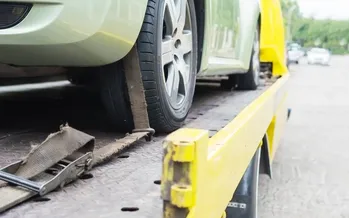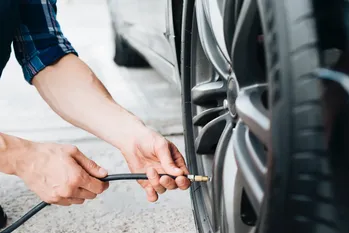Living within a budget is an essential part of financial responsibility and stability. Whether you are saving up for retirement, preparing for emergencies or simply trying to get out of debt, reducing your household expenses is a powerful way to secure your financial future. It may be tempting to focus on the large items in your budget, but it's often the small savings that add up over time and make a significant difference. In this article, we will explore some practical ways to cut your household expenses without sacrificing your quality of life.
I. Energy Efficiency
One of the most effective ways to save money on your monthly bills is by making your home energy efficient. Here are some simple yet impactful steps you can take:
A. Lighting
Replacing incandescent bulbs with LED bulbs may seem like a small change, but it can result in substantial savings over time. LED bulbs use significantly less electricity and last much longer than traditional bulbs.
B. Heating and cooling
Insulating your home is an investment that pays off in the long run. By preventing heat from escaping in the winter and keeping out the summer heat, you can reduce your heating and cooling costs. Installing a programmable thermostat allows you to set temperatures for specific times of day, ensuring that you're not wasting energy when you're not home. Sealing air leaks around doors and windows also helps maintain a consistent temperature and keeps drafts at bay.
C. Appliances
Upgrading your appliances to energy-efficient models can save you money on your utility bills. Look for appliances with the Energy Star label, which indicates that they meet strict energy efficiency guidelines set by the U.S. Environmental Protection Agency. Also, make sure to unplug appliances when not in use or switch them off at the power strip to avoid standby power consumption.
D. Water
Fixing leaks and installing low-flow fixtures are two simple yet effective ways to save water and reduce your water bill. Additionally, taking shorter showers, fixing dripping faucets, and only running full loads in the dishwasher or washing machine can help you conserve water and lower your monthly expenses.
II. Food and Groceries
Food is a significant expense for most households. Here's how to make the most of your food budget:
A. Meal planning and preparation
Planning your meals for the week and preparing them at home instead of eating out can save you a considerable amount of money. Creating a weekly menu based on what's in season, what's already in your pantry, and what needs to be used before it goes bad is an excellent way to avoid waste and reduce grocery bills.
B. Shopping smartly
Buying in bulk and using coupons are two effective strategies for saving money on groceries. Keep an eye out for sales and plan your shopping trips accordingly. Also, consider buying store brands instead of name-brand products; they can often be significantly cheaper without sacrificing quality.
C. Reducing food waste
Planning meals around leftovers and freezing excess food for later use is a great way to minimize food waste and save money. Additionally, properly storing your produce can help it last longer, reducing the need to buy replacements frequently.
III. Telecommunications and Utilities
Communication services and utilities can be among the largest monthly expenses for households. Here's how to reduce those costs:
A. Negotiating bills
Contacting your providers to discuss discounts or lower rates is an often-overlooked way to save money on your telecommunications and utility bills. Be prepared with information about competitors' offers and ask for a better rate based on your loyalty as a long-term customer.
B. Streamlining services
Bundling phone, internet, and cable services can help you save money by having one provider handle multiple services instead of dealing with several companies. If you don't need all the channels or features offered by your cable or satellite TV package, consider cutting the cord and switching to streaming services for entertainment.
IV. Transportation
Transportation costs, including fuel, insurance, and maintenance, can add up quickly. Here are some ways to save money on transportation:
A. Using public transportation
Taking buses, trains, or carpooling instead of driving is an effective way to reduce your fuel and maintenance expenses. Not only does this help you save money, but it's also good for the environment.
B. Car maintenance
Regular oil changes, keeping tires properly inflated, and performing routine car checks can help you avoid costly repairs down the line. Additionally, maintaining a clean air filter and checking your windshield wipers regularly ensures that your car runs smoothly and safely.
C. Cost-effective vehicles
Consider purchasing a fuel-efficient or hybrid vehicle to save on gasoline expenses in the long run. Alternatively, buying a used vehicle instead of a new one can help you save money upfront while still providing reliable transportation.
V. Household Supplies and Services
Household supplies and services, including insurance, maintenance contracts, and lawn care, can be significant monthly expenses for many households. Here are some ways to cut those costs:
A. DIY projects
Taking on simple home repair and cleaning projects yourself instead of hiring a professional can help you save money. This not only applies to the physical labor but also the cost of hiring someone else to do it. Additionally, growing your own vegetables or herbs in a garden is an excellent way to save on grocery expenses.
B. Comparing prices and shopping around
Researching different service providers, insurance companies, or lawn care services can help you find the best deal for your needs. Don't hesitate to negotiate rates or request discounts based on your loyalty as a long-term customer.
C. Eliminating unnecessary subscriptions or memberships
Evaluating your monthly expenses and eliminating any recurring charges for unused services is an effective way to save money. Assessing the value you receive from each subscription or membership can help you determine which ones are truly worth keeping.
FAQ Section
Q: Why should I focus on small savings instead of large expenses?
A: While it may seem more appealing to target significant expenses when trying to save money, focusing on small savings can lead to substantial long-term benefits. Consistently making small changes in various areas of your budget can add up to substantial savings over time. Moreover, these small adjustments are often easier to implement and maintain than large expenses that may require a more considerable investment or lifestyle change.
Q: How much can I save by using LED bulbs instead of incandescent bulbs?
A: According to Energy Star, replacing a 60-watt incandescent bulb with an Energy Star certified 13-watt LED bulb could save you around $75 over the lifetime of the bulb. Additionally, LED bulbs last much longer than traditional bulbs, meaning fewer replacements over time.
Q: What is the best way to prepare for negotiating my bills with service providers?
A: Before contacting your service providers to discuss discounts or lower rates, gather information about competitors' offers and be prepared to present this information during negotiations. Additionally, express your loyalty as a long-term customer and explain that you are considering switching to a competitor if they cannot offer more favorable terms.
Q: How can I save money on groceries without compromising my dietary needs?
A: To save money on groceries while maintaining a balanced diet, plan your meals around seasonal produce and take advantage of sales and discounts at the grocery store. Buying in bulk and freezing excess food for future use can also help reduce waste and lower overall expenses. Additionally, consider buying store-brand or generic alternatives to name-brand products whenever possible without sacrificing quality.
Q: What's the most effective way to save money on transportation?
A: The most effective way to save money on transportation varies depending on individual circumstances. Consider using public transportation, carpooling, or biking instead of driving if feasible. Regularly maintaining your vehicle and practicing fuel-efficient driving habits can also help reduce fuel expenses. Additionally, purchasing a fuel-efficient or hybrid vehicle can save you money on gasoline in the long run.
Q: Are there any hidden savings opportunities in household supplies and services that I may be missing?
A: Evaluating your monthly expenses and cutting unnecessary subscriptions or memberships is an excellent way to discover hidden savings opportunities in household supplies and services. Additionally, shopping around for better deals on insurance, maintenance contracts, or lawn care can help you save money without sacrificing quality. Finally, taking on DIY projects such as home repairs and gardening can further reduce your expenses while providing valuable skills and potential long-term benefits.
Conclusion
In conclusion, there are several practical ways to cut your household expenses without sacrificing your quality of life. From energy efficiency and food planning to telecommunications, transportation, and household services, implementing these strategies can make a significant difference in your monthly budget. By focusing on the small savings, you can secure your financial future and enjoy peace of mind knowing that you're making the most of your hard-earned money.











